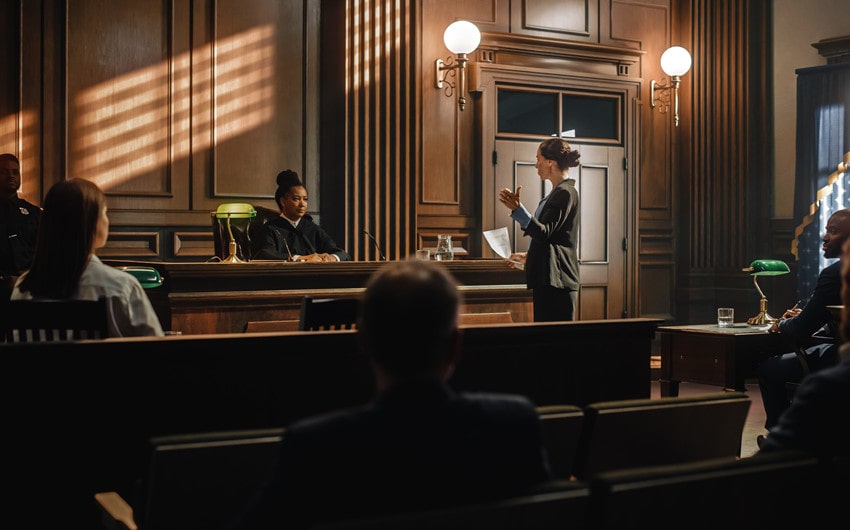What Most Federal Prosecutors Won’t Tell You
If you’ve been charged with a federal crime — or even suspect you’re under investigation — you might be imagining the worst. And the truth is, federal cases carry a level of weight that most people can’t comprehend until they’re in the middle of one.
Federal prosecutors are some of the most powerful attorneys in the country. They have virtually unlimited resources, investigators, and expert witnesses at their disposal. They know how to build cases that appear airtight — and they rely heavily on tapping into your fear and overwhelm.
But there’s also a lot they don’t want you to know. And understanding how the process really works could make all the difference between conviction and freedom.
Prosecutors Don’t File Charges Unless They Think They Can Win
Federal prosecutors have a conviction rate that hovers around 90 percent in many jurisdictions. But that number doesn’t mean everyone they charge is guilty — it means they’re selective.
They only file charges when they believe the case is strong enough to get a conviction. That gives them enormous leverage in plea negotiations, because they can make defendants feel like fighting back is hopeless.
What they won’t tell you is that their cases aren’t always as solid as they appear. Sometimes, the evidence is circumstantial, the witnesses are unreliable, or the investigative process was flawed. But once you’ve been indicted, prosecutors are banking on one thing: that you’ll panic and take the deal.
Federal criminal defense attorney Peter Katz explains it this way: “By the time the government brings a federal indictment, it’s already been months — sometimes years — in the making. Prosecutors assume they’ve got the upper hand. But when you look closer, you often find gaps, assumptions, or constitutional violations that can completely change the outcome of the case.”
With that being said, don’t assume the government’s case is bulletproof. It’s only as strong as the defense you bring against it.
Prosecutors Want You to Talk Before You Have a Lawyer
When investigators first approach you, they’re not doing it casually. They already have a plan — and it’s designed to make you talk. They might act friendly, sympathetic, or even suggest that you’re not in serious trouble. They might say something like, “We just want to clear up a few details,” or “You’re not the target here — we just need your help.”
That’s not always the truth. (At least, you should assume it’s not.)
Everything you say can and will be used against you. Even small inconsistencies — the kind that happen naturally when you’re nervous — can later be twisted to make you look dishonest. Federal agents are trained to build trust and extract statements that help prosecutors strengthen their case.
What they don’t tell you is that you have no obligation to answer questions without an attorney. You have the right to remain silent and the right to legal counsel — and you should exercise both immediately.
Prosecutors Count on You Pleading Guilty
Over 90 percent of federal criminal cases never go to trial — they end with plea agreements. Prosecutors know that the threat of harsh penalties is often enough to push defendants into pleading guilty, even when they’re innocent or when the evidence is weak.
They’ll offer you a deal that sounds tempting: plead guilty now and avoid a long sentence. But what they won’t tell you is that they’re using fear as a weapon. The “trial penalty” — the extra years you might face if you take your case to court and lose — is what gives prosecutors most of their power.
It’s an unfair system that discourages people from exercising their constitutional right to a trial.
Before accepting any plea deal, talk to an experienced federal defense attorney. A good lawyer can evaluate whether the evidence truly supports the charges and whether the government’s offer is actually in your best interest.
In some cases, attorneys can negotiate for reduced charges or even uncover legal issues that get the case dismissed entirely.
Prosecutors Rarely Mention Your Constitutional Rights
When you’re being investigated, you might assume that federal agents and prosecutors will respect your constitutional rights. But the truth is, they’re not going to remind you of them — and they might even hope you forget.
Federal cases often involve wiretaps, search warrants, subpoenas, and digital surveillance. Any one of these can violate your Fourth Amendment rights if handled improperly. But unless your attorney demands to see the details, no one else will.
That’s why early legal representation is critical. The right lawyer will scrutinize every step of the investigation. If your rights were violated, evidence could be suppressed — and without that evidence, the prosecution’s entire case could fall apart.
Federal prosecutors won’t tell you that. They’d rather you believe everything was done “by the book.” But behind the scenes, even the government makes mistakes.
Cooperation Isn’t Always the Best Strategy
You might be told that “cooperating” with the government is your best chance at leniency. And in some cases, that’s true, but only under very specific circumstances.
What prosecutors don’t tell you is that cooperation can be risky. If you agree to share information without clear terms, you could incriminate yourself or expose others unnecessarily. Once you’ve said something on record, you can’t take it back.
That’s why your attorney should be the one negotiating any cooperation agreements. They’ll ensure that your contributions are clearly defined and that you receive credit for them without overexposing yourself.
You Have More Power Than You Think
When you’re up against the federal government, it’s easy to feel powerless. But don’t underestimate what a strong defense can do.
Federal prosecutors depend on intimidation — the perception that their cases are unbeatable. But history proves otherwise. Skilled defense attorneys have successfully challenged evidence, cross-examined expert witnesses, and exposed flaws in investigations that led to acquittals and dismissals.
Adding it All Up
Federal prosecutors are powerful, but they’re not invincible. They make mistakes, and they count on you not knowing your rights.
The truth is, the sooner you bring an experienced federal defense attorney into your corner, the more control you regain. A good lawyer can challenge every assumption and expose the flaws prosecutors hope you’ll never see.
So if you’re under investigation or facing charges, remember that you don’t have to go quietly. And you absolutely don’t have to fight this battle alone.







